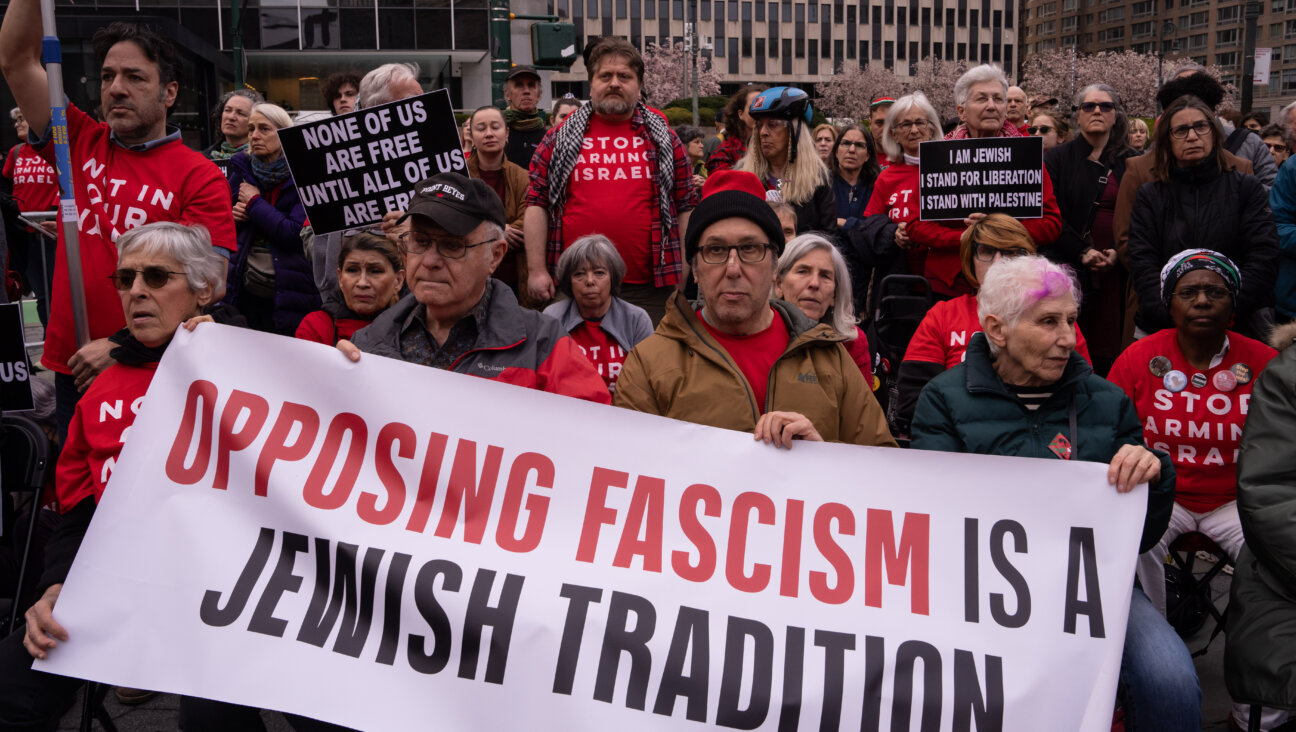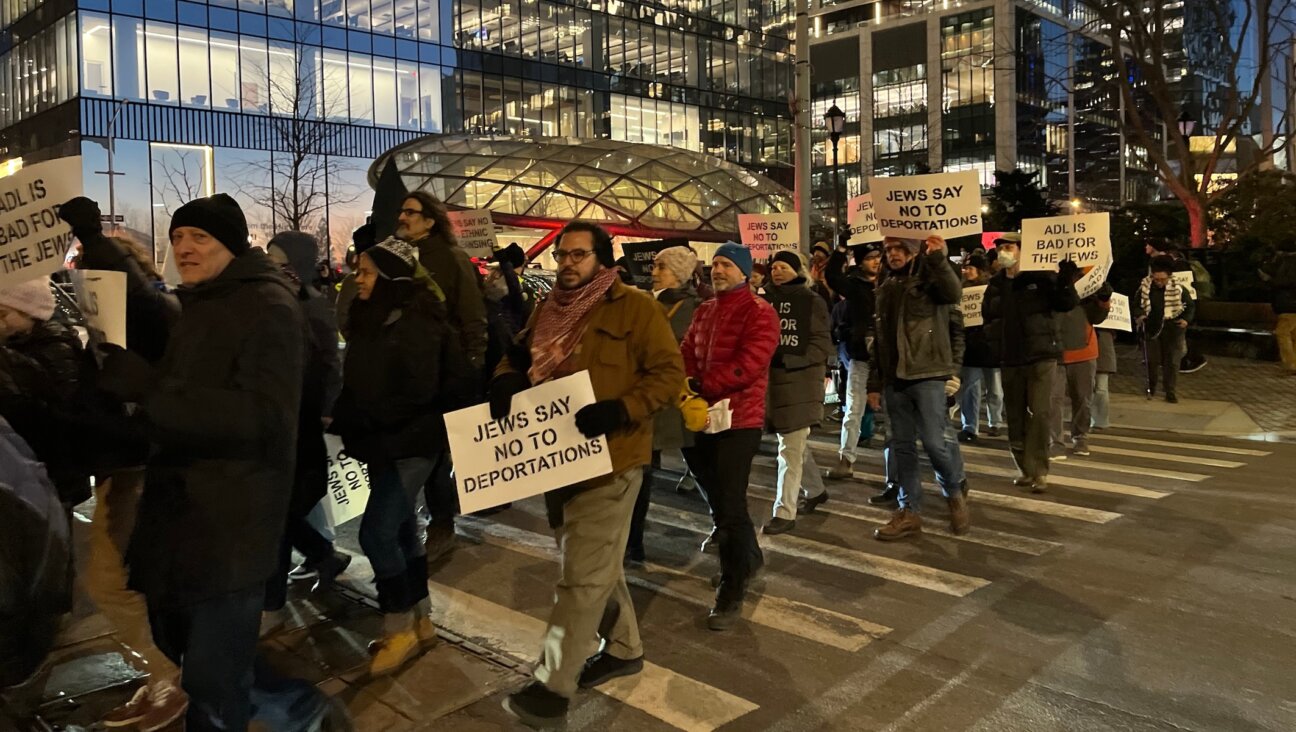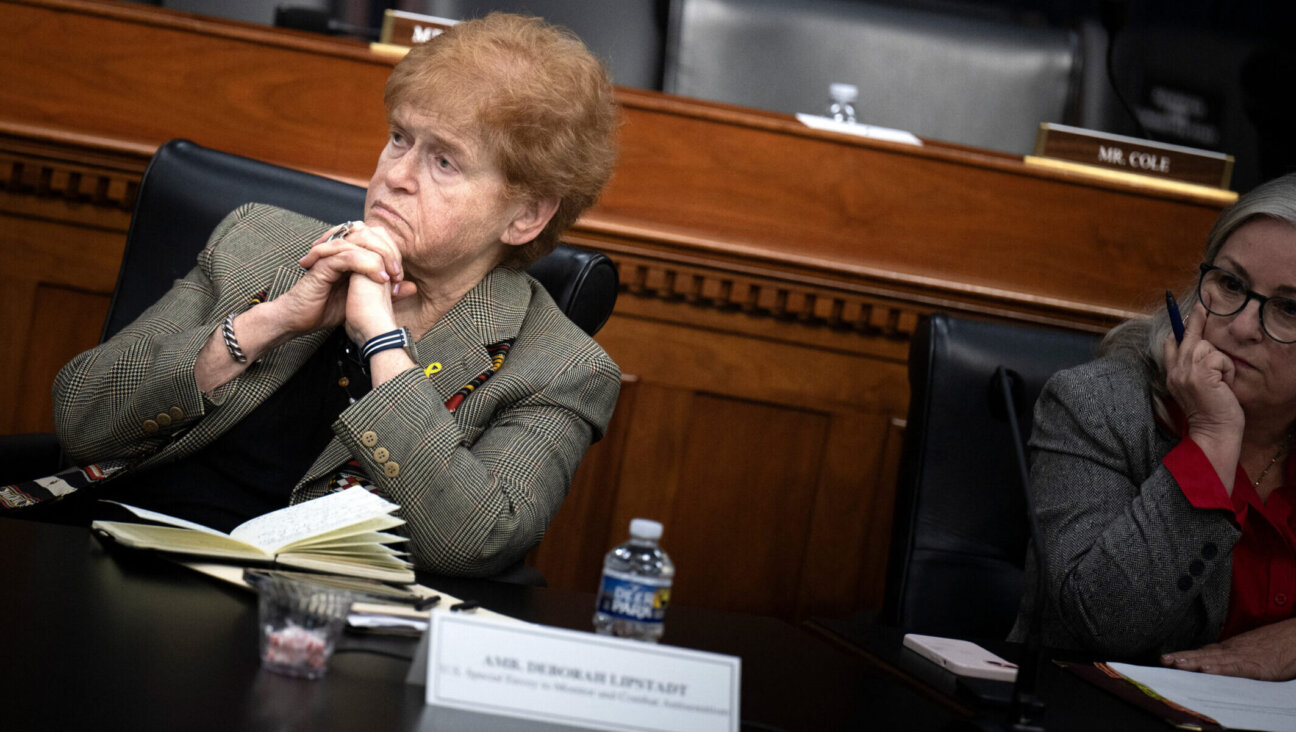Israel Clears Palestinians From E1 Camp

E1 Eviction: Israeli security forces bundle a Palestinian protester into custody Sunday at a tent city in the E1 section of the occupied West Bank. Image by getty images
Israeli security forces removed about 100 Palestinians early on Sunday from tents pitched in an area of the West Bank as a protest against Israeli plans to build a settlement there.
Israel’s Supreme Court ruled on Friday that the Palestinian outpost, built in the geographically sensitive area known as E1, could remain for six days while the issue of the removal of the tents was being discussed.
A police spokesman said the court allowed for the removal of the protesters even if the tents, for now, will stay.
Israeli Prime Minister Benjamin Netanyahu said he had ordered the area sealed off to prevent clashes.
“I immediately called for the area to be closed off so there would not be large gatherings there that could cause friction and breach the public order,” he told Army Radio.
“We will not let anyone block the continuum between Jerusalem and Ma’aleh Adumim,” Netanyahu added, referring to the large Jewish settlement that is nearby but deeper into the occupied West Bank.
Netanyahu praised Israeli security forces for their handling of the incident.
“t was indeed carried out last night in the best possible manner,” Netanyahu said at Sunday’s regular Cabinet meeting. “I would like to praise the Israel Police.”
Hundreds of Israeli police and border guards entered the compound and told a crowd of about 100 to leave the 20 large, steel-framed tents erected on Friday.
Those protesters who refused to leave were carried down the hill by Israeli officers and detained, but were not jailed. Israeli police vans took them to the West Bank town of Ramallah, the Palestinian seat of government.
“Everyone was evacuated carefully and swiftly, without any injuries to officers or protesters,” said police spokesman Micky Rosenfeld.
MORE CAMPS PLANNED
Palestinian activists criticised the raid and promised more protest camps in areas designated by Israel for settlements.
“The eviction and the exercise of force is another indication that Israel is defying the international consensus on the need to vacate occupied Palestinian land,” Palestinian government spokesman Nour Odeh said.
For years, Israel froze building in E1, which currently houses only a police headquarters, after coming under pressure from former U.S. President George W. Bush.
Netanyahu said Israel would build at E1 after the planning process was completed.
“It is a gradual process, it will take time. It will not happen immediately, you understand our bureaucratic process … We will complete the planning an there will be building there,” he told Army Radio.
Israel announced plans to expand settlements, mainly in West Bank areas around Jerusalem, after the Palestinians won de-facto recognition of statehood at the U.N. General Assembly in November.
International powers view all Jewish settlement building in areas captured by Israel in the 1967 Arab-Israeli War as detrimental to securing an Israeli-Palestinian peace deal.
E1 covers 4.6 square miles (12 square km) and is seen as particularly important because it not only juts into the narrow “waist” of the West Bank, but backs onto East Jerusalem.
Palestinians want to establish an independent state in the West Bank, dominated by Palestinian President Mahmoud Abbas’ Fatah faction, and the Gaza Strip, run by the rival Islamist group Hamas, with East Jerusalem as the capital.
About 500,000 Israelis and 2.5 million Palestinians live in the West Bank and East Jerusalem. Direct peace talks between Israel and the Palestinians broke down in 2010 over the issue of Israel’s continued settlement building.
The Forward is free to read, but it isn’t free to produce

I hope you appreciated this article. Before you go, I’d like to ask you to please support the Forward.
Now more than ever, American Jews need independent news they can trust, with reporting driven by truth, not ideology. We serve you, not any ideological agenda.
At a time when other newsrooms are closing or cutting back, the Forward has removed its paywall and invested additional resources to report on the ground from Israel and around the U.S. on the impact of the war, rising antisemitism and polarized discourse.
This is a great time to support independent Jewish journalism you rely on. Make a gift today!
— Rachel Fishman Feddersen, Publisher and CEO
Support our mission to tell the Jewish story fully and fairly.
Most Popular
- 1

Opinion The dangerous Nazi legend behind Trump’s ruthless grab for power
- 2

Opinion A Holocaust perpetrator was just celebrated on US soil. I think I know why no one objected.
- 3

Culture Did this Jewish literary titan have the right idea about Harry Potter and J.K. Rowling after all?
- 4

Opinion I first met Netanyahu in 1988. Here’s how he became the most destructive leader in Israel’s history.
In Case You Missed It
-

Culture Trump wants to honor Hannah Arendt in a ‘Garden of American Heroes.’ Is this a joke?
-

Opinion Gaza and Trump have left the Jewish community at war with itself — and me with a bad case of alienation
-

Fast Forward Trump administration restores student visas, but impact on pro-Palestinian protesters is unclear
-

Fast Forward Deborah Lipstadt says Trump’s campus antisemitism crackdown has ‘gone way too far’
-
Shop the Forward Store
100% of profits support our journalism
Republish This Story
Please read before republishing
We’re happy to make this story available to republish for free, unless it originated with JTA, Haaretz or another publication (as indicated on the article) and as long as you follow our guidelines.
You must comply with the following:
- Credit the Forward
- Retain our pixel
- Preserve our canonical link in Google search
- Add a noindex tag in Google search
See our full guidelines for more information, and this guide for detail about canonical URLs.
To republish, copy the HTML by clicking on the yellow button to the right; it includes our tracking pixel, all paragraph styles and hyperlinks, the author byline and credit to the Forward. It does not include images; to avoid copyright violations, you must add them manually, following our guidelines. Please email us at [email protected], subject line “republish,” with any questions or to let us know what stories you’re picking up.













